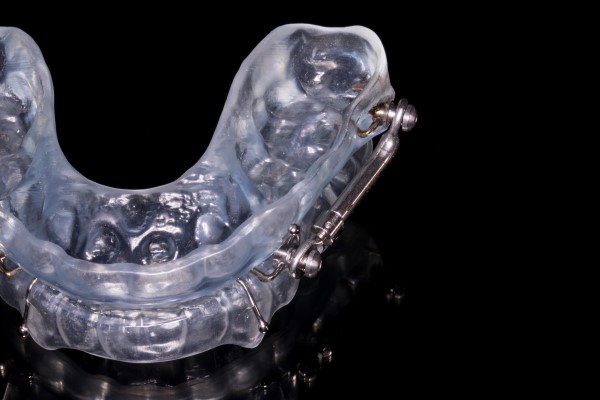How Does Dental Oral Appliance Therapy Treat Sleep Apnea?

Wondering how oral appliances can help treat sleep apnea? Oral appliance therapy tends to be the initial treatment when someone is diagnosed with this serious sleeping disorder. Since there are different types of oral appliances, it is essential to choose the right kind.
Dental sleep apnea treatment
Dental treatment is a popular way to address sleep apnea, as dentists are qualified to diagnose and treat the condition. The main reason why sleep apnea treatment from a dental professional is so popular is that oral appliance therapy is a non-invasive option. Other treatment options include taking medications, using a CPAP machine, undergoing certain medical procedures, and undergoing surgery. However, oral appliances are easy to use, pain-free, and can do wonders for those suffering from sleep apnea.
According to WebMD, dental devices can help keep the airway open while sleeping, as dentists with special expertise in treating sleep apnea can custom-design them.
How dental oral appliance therapy helps sleep apnea patients
The information below explains how oral appliance therapy works to help those diagnosed with this serious sleeping disorder. The overall goal is to keep the patient's airways open while sleeping, allowing them to breathe more easily. This is why oral appliances focus on preventing the jaw and tongue from blocking one's airway.
It keeps the jaw in a forward position
Dental oral appliance therapy helps keep one's jaw in a forward position. This allows the jaw to be positioned in a way that supports a more open airway, allowing those diagnosed with sleep apnea to breathe more easily. The focus is on repositioning the lower jaw so it somewhat protrudes past its regular position, allowing for a more open airway. This type of oral appliance therapy uses mandibular repositioning appliances, which are custom-made for every patient.
It keeps the tongue in the front part of the mouth
Oral appliances also help keep a patient's tongue in the front of their mouth. When the tongue is pulled more to the front part of the mouth, it prevents it from falling into the back part of the mouth, which can block the airway, thus resulting in sleep apnea. Oral appliances that focus on keeping the tongue in the front of a patient's mouth often include using a mandibular repositioning appliance, which also focuses on keeping the jaw in a forward position. Another option is using a tongue retaining device, which only focuses on positioning the tongue.
To conclude
Now that it is understood that oral appliance therapy can help treat sleep apnea, those diagnosed with this serious disorder can take the next step. Since there are a few different oral appliance options, choosing the right one helps ensure sleep apnea sufferers can get the relief they seek. To receive professional guidance and make the right choice, a consultation appointment is necessary.
Are you considering Sleep apnea treatment in the Santa Cruz area? Get more information at https://www.kevinjdailydds.com.
Check out what others are saying about our dental services on Yelp: Do I Have Sleep Apnea in Santa Cruz, CA.
Recent Posts
Millions of people all over the world live with sleep apnea, however, a good number of those are yet undiagnosed. Most people would probably think of a sleep clinic first for diagnosis and treatment, but the general dentist is sometimes the first professional to discover signs of the condition. They also provide options to ease…
Patients who are afflicted with sleep apnea often experience a variety of symptoms during sleep, including snoring, irregular breathing patterns or even stopped breath. The condition can have long-term effects on the people who suffer from it, so it is important to know the facts to treat it effectively and improve overall health in patients.It…
Sleep apnea is a health issue, causing people to stop breathing intermittently during sleep, that should be taken seriously. The condition is divided into two categories: obstructive and central sleep apnea.Obstructive sleep apnea is the most common type. When the breathing stops temporarily, the soft tissues of the airway falls, and this inhibits oxygen from…
Dentist can build a mouth guard to fit your teeth and prevent snoring, in a comfortable way.An obvious sign of sleep apnea is snoring loud enough to wake others up or having brief periods of breathing cessation while asleep. Fortunately, we have a treatment for sleep apnea that is easy to use and effective.Do I…


